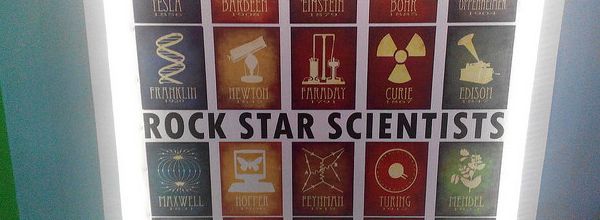Grad school is a long, hard, long, time-consuming, and–wait for it–long process.
A bad relationship with your primary mentor can make it worse, and may even drive you away from a science career. Unfortunately, you often can’t spot incompatibility until you’ve spent time with a mentor and lab. Even then, how do you tell the difference between a rough patch in an otherwise effective relationship, versus red flags indicating that you should switch to another mentor?
Red Flag 1: Poor communication
Do you communicate well with your mentor? Whether this is unscheduled drop-ins, a weekly update with an in-progress Excel graph, or a formal monthly meeting with PowerPoint, is it working for you?
No one’s communication styles match perfectly. If there’s enough good in the relationship and your project, you may try adjusting first. Here at Bitesize Bio, Joanne Kamens has provided some excellent advice on establishing good communication with your mentor .
But sometimes adjustments don’t work. Despite meeting weekly, Ann*, a grad student at the University of Washington, realized that she was floundering without more concrete guidance. Although she attempted to improve communication with her mentor and reached out to senior lab members for more hands-on help, she ultimately switched to a different mentor. “Try to make changes within months,” she cautions now, “not years.”
Red Flag 2: Other unhappy people
As a postdoc who switched labs during grad school, Alison says a red flag about her former group was that “morale of the lab group was not high.” A student left the lab soon after she had joined, which Alison then excused as a difference in styles. Now, she realizes that the student leaving was “an indication of how the other students and employees felt at work.”
Ann strongly agrees that poor morale is a red flag: in her former mentor’s lab, people fought and argued regularly. “Nobody talked, [or] ate lunch together,” she recalls. People left early whenever possible. None of the thirty lab members worked closely enough to realize everyone had a different PCR protocol for the same genes.
Pay close attention to morale and group dynamics. A badly-run, unhappy lab is a bad sign for a mentor’s leadership abilities.
Red Flag 3: Stress, depression, and anxiety
But what if the unhappy person is you? Stress, depression, and anxiety are red flags about a bad situation: don’t dismiss them! Do you dread meeting with your adviser for days ahead of time? Do you wake up anxious? Do you cry from stress, like Ann did before she switched, or find yourself needing to drink at the end of a day, like Katie*, an American grad student in a difficult mentoring relationship?
It’s quite possible to have anxiety and depression independent of grad school, but still be in a bad situation. And being in a bad situation brings out anxiety and depression in otherwise healthy people! A counselor can help you determine how to cope, whether through cognitive behavioral therapy, medication, or other means. Ann found going to her university’s student counseling center helpful, while Alison drew support from her friends and significant other.
Whether you switch or not, ask yourself if you want to continue like this for one year, two years, or even seven years.
Red Flag 4: Mismatched priorities
Seven years seems like an improbably long biomedical PhD, but if other students in the lab take seven-plus years to graduate–like in Ann’s former lab and Katie’s current one–then that probably indicates mismatched priorities between the students and mentor. But there are other signs. Ann’s former mentor did not support her taking a weekly class helpful for her career goal, nor help her progress through her program. “He fell asleep during my [qualifying exam] presentation,” she recalls now.
It’s perfectly normal for mentors to have their own goals. However, it’s a red flag if they have a track record of not letting people go, and interfering with students progressing and preparing for future careers!
Red Flag 5: Lack of trust
This is the biggest red flag: do you trust your mentor to behave professionally? To provide a solid recommendation like promised? To ensure that you work in a functioning, safe lab? To be honest, ethical, and fair, with people, lab animals, and data?
Unfortunately, Alison realized that she “did not have good faith in the quality of science or scientists” in her former lab. Ann’s former lab was so unfriendly that questions about safety weren’t properly addressed, and nobody trained or supervised the undergrad assistants. A soured relationship between her former mentor and his postdoc, and the mentor’s lack of collaborations, also showed how little trust others had in him. Ultimately, Katie recommends paying attention to how a mentor treats others and talks about former trainees, because “whatever happens to other people could very well happen to you.”
Next steps
Grad school is long (did I already mention that?) and tough enough without a bad mentoring relationship, which can dog you even after graduation. In my next article, I’ll be covering how to switch mentors in a professional (and sanity-protecting) way. Until then, what red flags have you noticed in poor mentoring relationships? How have you and others coped?
* Names changed by request.





